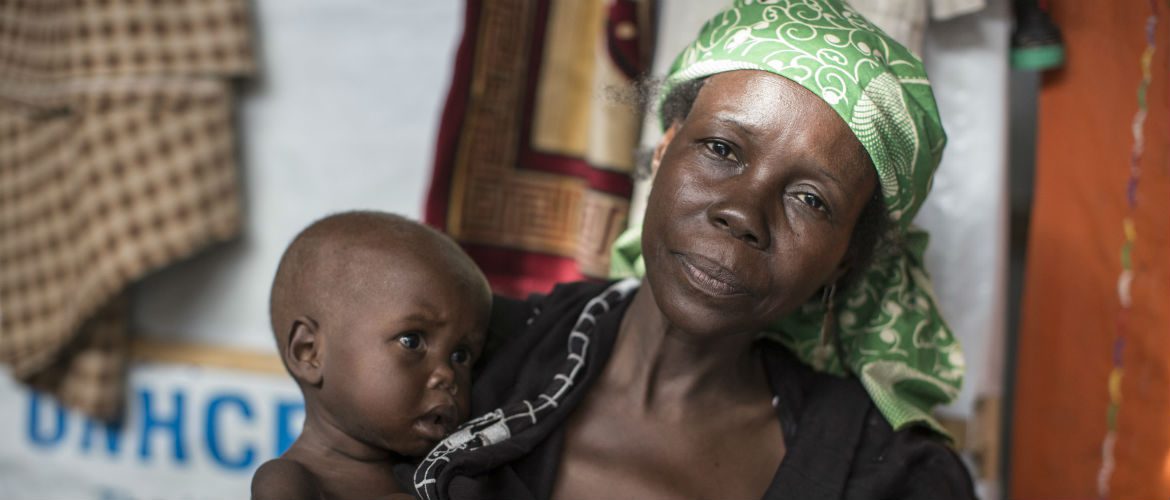
The ongoing conflict with Boko Haram across West Africa’s Lake Chad Basin region has forced more than 2.6 million people to flee terrifying violence in Nigeria, Niger and Chad, cutting them off from their livelihoods and essential services, and destroying vital infrastructure.
The number of displaced people in the most affected areas has tripled over the last two years. Often moving from one place to another over a matter of months, as they fear for their safety.
Most of the displaced families are sheltered by communities that count among the world’s poorest, in informal settlements that lack access to basic services like water and sanitation.
Having left everything behind, their homes ruined and their lives completely disrupted, large numbers of women, men, girls and boys live in extreme vulnerability.
Boko Haram came at night. They stole everything including our food. They warned us that they’d come back and kill us all so we left before dawn. We suffered a lot on the journey. We escaped on motorbikes, six of us on one bike.” – Hassana*, mother of four, displaced in north eastern Nigeria.
Malnourished children
Conflict in the Lake Chad Basin is pushing communities into dangerous levels of food insecurity and malnutrition, particularly among children. Household food stocks have run out, people have poor access to markets, and high prices are making food unaffordable. In North East Nigeria, over 1 million people are one step away from famine.
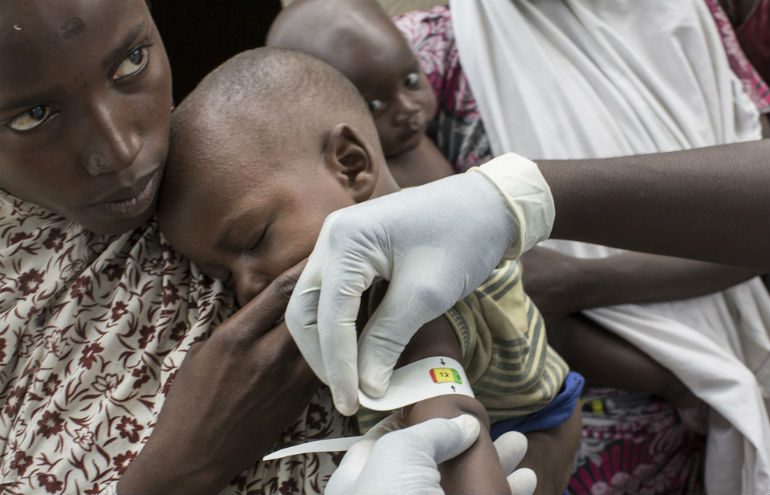
Amina*, 20, holds her son, who has been suffering from fever and diarrhea, as he’s checked for malnutrition at a clinic in a part of the town of Banki that has been set aside as a camp for people displaced by the conflict with Boko Haram. The staff here are all IDPs, who have been trained to treat members of their community. Most of the town is abandoned.
As a result of military operations against Boko Haram communities have been relocated from their homes to areas without basic services, jobs and means of survival. The people in the camp at Banki are made up of locals from surrounding villages, previously occupied by Boko Haram, Nigerians, and Chadians who have been in Nigeria for a long time and have been caught up in the conflict. Now some 15,000-32,000 people are living here under the supervision of the army, with limited humanitarian assistance reaching them.
Waterborne diseases
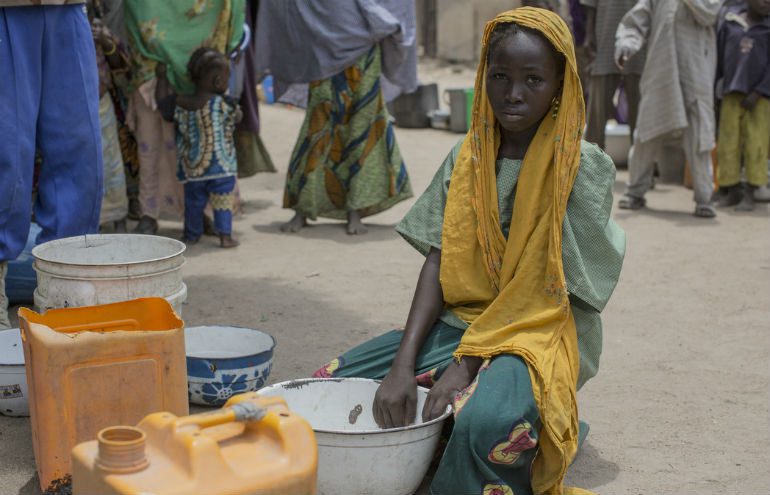
Photo: Sam Tarling / Oxfam
Poverty and vulnerability have been exacerbated by the conflict, with the affected areas lacking the infrastructure and resources to deal with a crisis of this scale. The conflict has led to the wholesale destruction of entire villages, roads, water sources, health facilities and schools.
Water is a huge problem, and with the rainy season already in full swing, the risk of waterborne disease outbreaks, such as cholera, is high. Children often die from diseases caused by drinking dirty water – like diarrhea.
Abandoned lone mothers
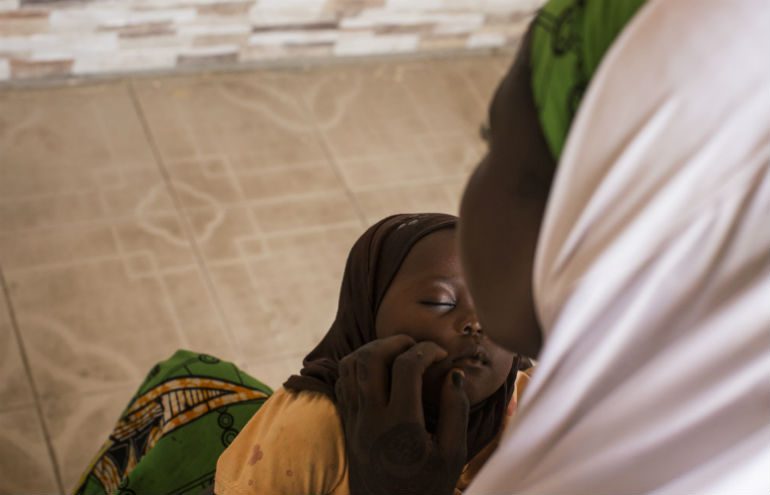
Photo: Sam Tarling / Oxfam
Kadija was kidnapped by Boko Haram and forcibly married to a fighter to whom she bore a child. As the former wife of a Boko Haram fighter Kadija faces stigmatization from her community, as does her child who is seen to carry ‘bad blood’.
She currently lives in a camp for people displaced by the conflict with Boko Haram, because her father disowned her. She was taken to the bush where she gave birth with no medical facilities. Once she deemed the baby strong enough she made her escape.
After escaping Boko Haram she was detained by the Nigerian military. She said: “I was kept with other women who had been forcibly married. We were tortured and dehumanized by the military. We were called wives of Boko Haram and we spent one month in detention. It was a harrowing experience. Then they released me.”
Torn apart families
In addition to the 2.6 million people currently displaced, an additional 2.2 million people – over half of them children – are feared to be trapped in areas under the control of Boko Haram and need humanitarian assistance.
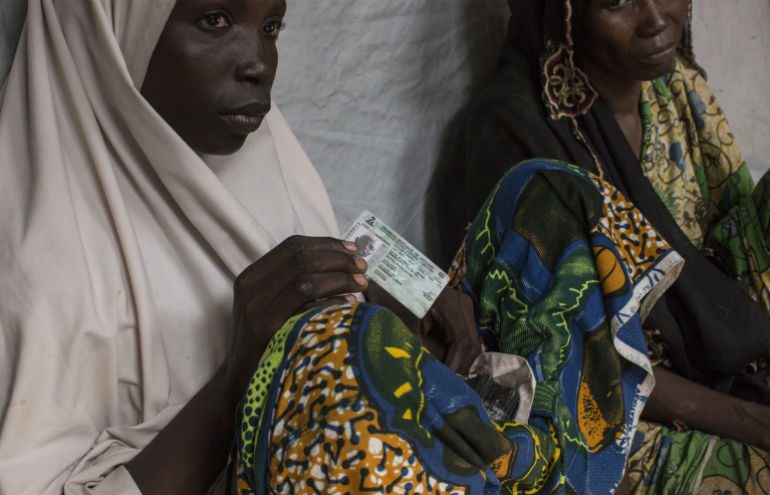
Bintu*, 30, a mother of five from Soya, near the town of Bama, holds her husband’s ID card inside a shelter in a camp for displaced people in Maiduguri in Borno State, north eastern Nigeria.
Bintu’s husband hid beneath their bed for 25 days in fear of being taken by Boko Haram. They would repeatedly come to the house asking for him. One night he slipped out to walk to Maidiguri but was caught. Bintu doesn’t know if he’s still alive.
Farmers’ lost livelihoods
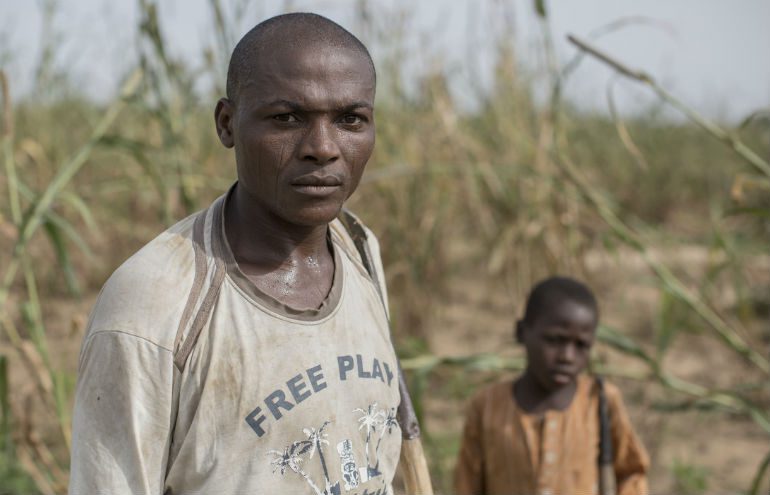
Photo: Sam Tarling / Oxfam
Hassan was a prosperous farmer before fear of violence from Boko Haram forced him to flee his village. Now he has to work as a laborer in order to make up the shortfall in food for his family. He said: “I have to feed my six children, my wife, my grandmother and two grandsons. How many days will [this food] last us? It’s just not going to be enough.”
“We were so afraid, even if we had food we couldn’t eat what was put on the table. It was terrible. We couldn’t even come to the farm. If we came to the farm Boko Haram would come on motorcycles and kill or abduct you. We had to leave our farm and our live stock and run to the city. Before Boko Haram attacked I had a bigger farm but now I am too scared to farm it – maybe next year”
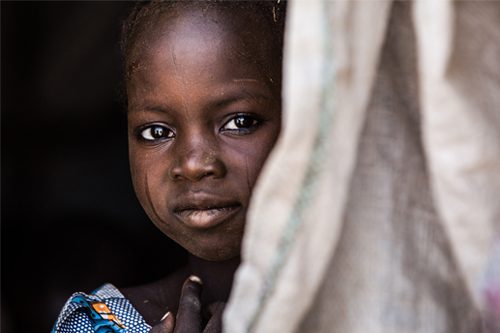
Africa Crisis Appeal
Please donate today to help families affected by this terrible crisis get access to the basic essentials — clean water, food, and shelter — so they can remain healthy and safe.